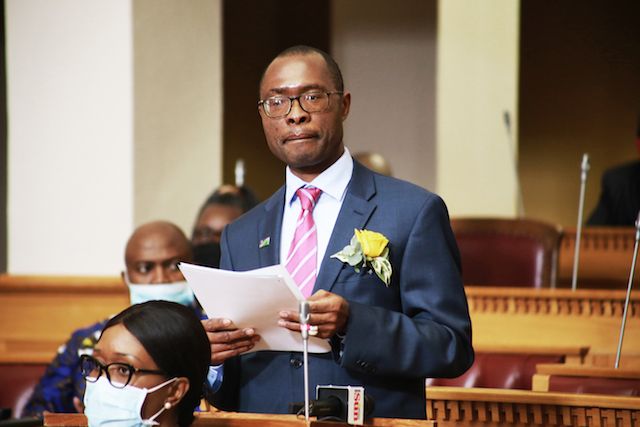BANGALORE – For three generations, two families have fought over an acre (0,4 hectare) of farmland in an arid stretch of southern India, each waving documents to support its claim.
Throughout this long feud, the land deeds that would settle it have probably lain in mounds of records in some dusty, rat-infested government storehouse, and they may never be found. But now computers are coming to the rescue.”I have another plot of two acres (0,8 hectare) in the village and I know it can never be snatched from me,” said Chikka Arasappa (55) “because I have this.””This” is a computer printout of the title to those other two acres (0,8 hectare), courtesy of the government of Karnataka state, which has digitised agricultural land records to make them accurate, fraud-proof and easily accessible.For India, where one-third of the people are illiterate and land is fragmented into small holdings, sorting out the deeds would be a huge boon.If it spreads to the rest of the nation of 1,06 billion people, the country whose computer skills have done so much to advance the online world will have brought the revolution back home.”Errors in land records are now a thing of the past,” Arasappa said, standing at the entrance to a government building in Bangalore, the state capital, where he had come to collect the new land records for himself and his neighbours.In India, a land record is at the core of a villager’s life.It represents his right to farm and live on the land; it’s the basis for getting loans or flood relief, and a symbol of social position.Now those villagers can walk into any of 200 kiosks – one-room cyber centres – across the state and get a printout of their deed for 15 rupees (about N$2,20) or register a change of ownership.No longer do they have to deal with overworked, semiliterate village registrars who often exact a bribe of anywhere between 92 rupees (about N$2,50) and 920 rupees (about N$140) to hand over the papers and even take payoffs from land grabbers to falsify records.India’s federal government asked the states in 1991 to computerise land records, but the few that tried failed repeatedly.There weren’t enough computers, the work load was too much, and the village registrars saw their income from bribes shrinking.Karnataka learned from several failures, surveyed 27 000 villages and verified 20 million land deeds involving 6,7 million farmers.In 2001 the programme called Bhoomi – “earth” in India’s ancient Sanskrit language – went into action.Within two years every paper relating to each piece of farmland in the state was available digitally.Paper records were then banned.Computerisation can’t undo all the errors made over decades when documents may have been overwritten several times.That’s why even the new technology doesn’t offer Arasappa much hope that the dispute over that acre (hectare) of rice farmland will ever be sorted out.But the programme ensures that no new errors can creep into records.Fingerprint ID is needed to authorise any change in records, so any fraud can be quickly traced to the perpetrator.Neighbouring Tamil Nadu and Andhra Pradesh states have begun computerising land records and delivering them online, while the next phase in Karnataka is to increase the number of kiosks to 1 000 over the next four years so that farmers like Arasappa, who lost half a workday travelling to and from Bangalore for his records, can get them more easily.”Just 200 kiosks to serve nearly seven million farmers is awfully short,” said Rajiv Chawla, in charge of Karnataka’s electronic governance.And there’s more.The state plans to make available 42 citizen services online, including birth and death certificates, applications for pensions and unemployment aid, and information for farmers about prices, methods and seeds.Good monsoon rains, after four years of drought, bode well for a bumper crop this year, and with their digitised deeds, Karnataka’s farmers will be able to get subsidies and bank loans more easily.- Nampa-AP On the Net: Bhoomi project:http://www.bhoomi.kar.nic.inBut now computers are coming to the rescue.”I have another plot of two acres (0,8 hectare) in the village and I know it can never be snatched from me,” said Chikka Arasappa (55) “because I have this.””This” is a computer printout of the title to those other two acres (0,8 hectare), courtesy of the government of Karnataka state, which has digitised agricultural land records to make them accurate, fraud-proof and easily accessible.For India, where one-third of the people are illiterate and land is fragmented into small holdings, sorting out the deeds would be a huge boon.If it spreads to the rest of the nation of 1,06 billion people, the country whose computer skills have done so much to advance the online world will have brought the revolution back home.”Errors in land records are now a thing of the past,” Arasappa said, standing at the entrance to a government building in Bangalore, the state capital, where he had come to collect the new land records for himself and his neighbours.In India, a land record is at the core of a villager’s life.It represents his right to farm and live on the land; it’s the basis for getting loans or flood relief, and a symbol of social position.Now those villagers can walk into any of 200 kiosks – one-room cyber centres – across the state and get a printout of their deed for 15 rupees (about N$2,20) or register a change of ownership.No longer do they have to deal with overworked, semiliterate village registrars who often exact a bribe of anywhere between 92 rupees (about N$2,50) and 920 rupees (about N$140) to hand over the papers and even take payoffs from land grabbers to falsify records.India’s federal government asked the states in 1991 to computerise land records, but the few that tried failed repeatedly.There weren’t enough computers, the work load was too much, and the village registrars saw their income from bribes shrinking.Karnataka learned from several failures, surveyed 27 000 villages and verified 20 million land deeds involving 6,7 million farmers.In 2001 the programme called Bhoomi – “earth” in India’s ancient Sanskrit language – went into action.Within two years every paper relating to each piece of farmland in the state was available digitally.Paper records were then banned.Computerisation can’t undo all the errors made over decades when documents may have been overwritten several times.That’s why even the new technology doesn’t offer Arasappa much hope that the dispute over that acre (hectare) of rice farmland will ever be sorted out.But the programme ensures that no new errors can creep into records.Fingerprint ID is needed to authorise any change in records, so any fraud can be quickly traced to the perpetrator.Neighbouring Tamil Nadu and Andhra Pradesh states have begun computerising land records and delivering them online, while the next phase in Karnataka is to increase the number of kiosks to 1 000 over the next four years so that farmers like Arasappa, who lost half a workday travelling to and from Bangalore for his records, can get them more easily.”Just 200 kiosks to serve nearly seven million farmers is awfully short,” said Rajiv Chawla, in charge of Karnataka’s electronic governance.And there’s more.The state plans to make available 42 citizen services online, including birth and death certificates, applications for pensions and unemployment aid, and information for farmers about prices, methods and seeds.Good monsoon rains, after four years of drought, bode well for a bumper crop this year, and with their digitised deeds, Karnataka’s farmers will be able to get subsidies and bank loans more easily.- Nampa-AP On the Net: Bhoomi project:http://www.bhoomi.kar.nic.in
Stay informed with The Namibian – your source for credible journalism. Get in-depth reporting and opinions for
only N$85 a month. Invest in journalism, invest in democracy –
Subscribe Now!










